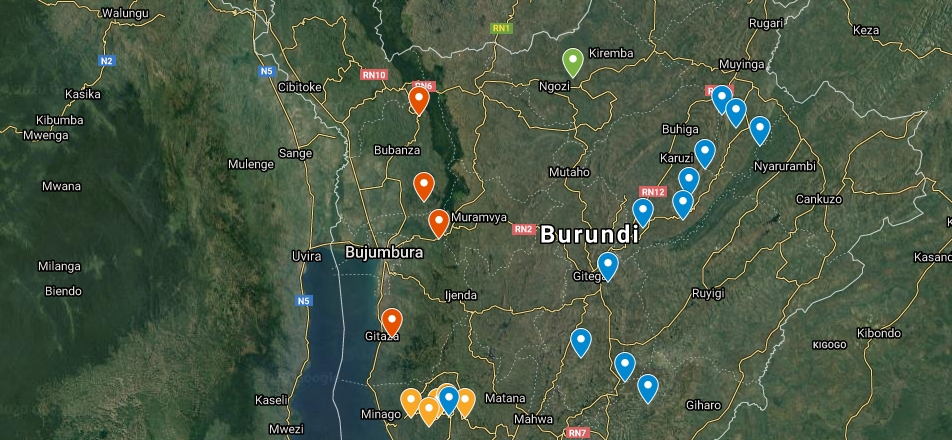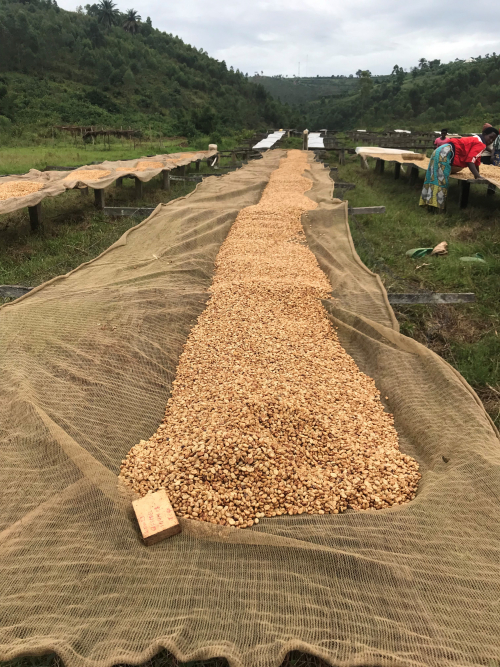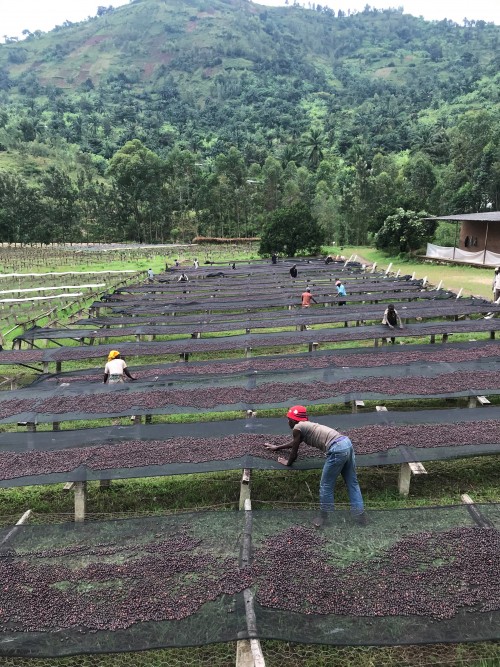Why specialty coffee?
Burundi, Specialty coffees
Why Specialty coffee?
With the extremely low farm-gate prices witnessed around the producing regions worldwide Farmers have been struggling to make ends meet, giving them access to a better paying market by producing finer coffees is one way to ensure they continue making a living out of coffee. Identifying the potential to do just that, Supremo, in tight collaboration with a local partner, ventured into producing Specialty coffees within it's Akawa Project in Burundi. 4 washing stations were selected based on their infrastructure, altitude, and quality of cherries | Carefully crafted production of both Natural and Honey coffee started in 2018. Farmers have embraced the idea of improving their picking and handling techniques aware of their role at the very beginning of the value chain. Read further to discover more about these gems:

Washing stations

Rugazi
- 1425 masl
- 1360 mm rains
- 18 °C average
- Lat, Long: -3.22603 S, 29.46547 E
- 90 drying beds
Runyinya
- 1700 masl
- 1340 mm rains
- 18 °C average
- Lat, Long: -3.8069 S, 29.5288 E
- 100 drying beds + drying tunnel

Kirasa
- 1100 masl
- 1320 mm rains
- 19 °C average
- Lat, Long: -3.5977 S, 29.37612 E
- 230 drying beds
Nyagashiha
- 1530 masl
- 1350 mm rains
- 18 °C average
- Lat, Long: -3.81'77 S, 29.43'04 E
- 220 drying beds

Quality of Cherries
Farmers are trained to deliver strictly ripe cherries to the mills. A first visual selection is made upon arrival followed by the usual flotation check. Unripe cherries and floaters are discarded and not used for Specialty coffee processing. Cherries are delivered to the mill within 5 hours of picking and are processed as soon as minimal volumes are collected in order to not compromise quality.
Pulping
Honey coffee cherries on the stations of Runyinya and Rugazi are passed through the same pulpers as the Fully Washed coffees. The pulpers are cleaned to avoid any contamination between batches. Once pulped the sticky mucilage bypasses the fermentation tanks and is sent directly to the drying beds. There is no pulping taking place in the case of Natural coffees, these are sent to the drying beds straight after flotation has taken place. Fully Washed lots pass through both the pulpers and tanks.
Drying & Picking
The stage of drying the coffees is where the magic happens but also a time when all can go wrong, a very cautious effort is applied to the coffee lots at this vital yet lengthy stage of the processing: Lots are turned every 15 minutes for the first 72 hours in order to allow the coffee to breath and prevent the initial formation of bacteria. Hand-pickers are already hard at work inspecting visually the tables and removing all cherries and beans which do not meet the quality standard (basically nipped and immature which would have passed through the initial filters of control). From day 3 the coffees are turned every hour, beds are covered in 3 occasions which are rain, afternoon sunshine, and night-time/ Covering in the intense afternoon sunshine allows to not crack any beans due to over exposure. As the turning of coffee continues for up to 3 weeks (average 2) the handpicking continues with a strict attention to detail, no unfit bean is left on the tables by the time a lot is fully dry !
Storage & Milling
Once dry the lots are stored in clean warehouses at the mills, separated by production date and already packed in preservation bags (Grainpro or Ecotact) which are stacked on clean pallets. The lots are moved on demand to the central dry mill avoiding any mixing during transport and cleans separate stacking upon arrival. Coffees are then dry milled after being selected by our buyers and sent to port packed in new preservation bags (the ones used at first stage are discarded to avoid any risk of contamination).
When it comes to ensuring quality & lot integrity :
- Selection of lots by clients prior & post milling
- Cross-check approval by individual lots & 10 bags at a time
- Cross-check approval on Loading sample basis
- Inland samples drawn & checked for consistency
- All samples handled by Supremo Representative
- Zero tolerance on defects # Mixed container (up to 5 qualities) - Multi origin possible
- Warehousing in Kigali & Nairobi (cooler storage)

Quick Facts
- Drying Natural coffee can take up to 150% more time than drying Fully Washed coffee
- Supremo's Specialty coffees are turned on the drying beds on average 310 times
- These coffees are produced by farmers member of the Akawa Project, a sustainable initiative by Supremo that focuses on agricultural and social empowerment of smallholder farmers
- Both Natural and Honey processes allow to greatly reduce the usage of water, up to 90%
- Producing Specialty coffee has allowed us to create 50 seasonal jobs in Burundi
Get in touch ...
Get in touch to book your 2020 lots, to discuss a trip to Burundi, or simply to discover more about our Specialty gems...
